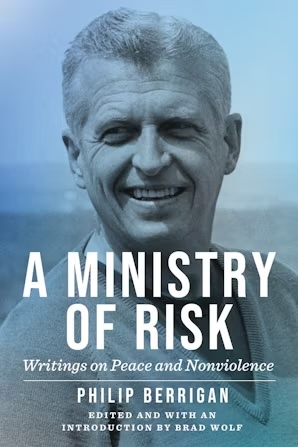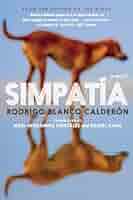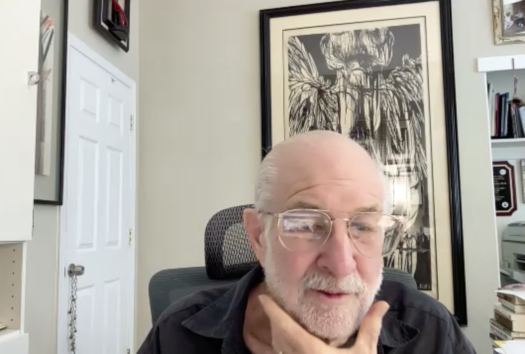¡Desconecta con la aplicación Player FM !
Brad Wolf, A MINISTRY OF RISK, Noel Hernandez, SIMPATÍA, William Bronston on Willowbrook State School
Manage episode 429712269 series 1191071
In this episode of Writer’s Voice, we dive into the worlds of peace activism and literary translation through conversations with Brad Wolf and Noel Hernández-Gonzalez. Also, William Bronston, the doctor who brought instiionalization of the developmentally disabled to an end, reads from his book, Public Hostage, Public Ransom.
Brad Wolf discusses his work on Ministry of Risk, a collection of Philip Berrigan’s writings exploring themes of nonviolent resistance and liberation. Noel Hernández-Gonzalez shares insights into translating Simpatía, a novel by Rodrigo Blanco Calderón, depicting the devolution of Chavismo into chaos and poverty, through an effort to save Venezuela’s abandoned dogs.
Writers Voice— in depth conversation with writers of all genres, on the air since 2004.
Connect with Us: Follow us on social media to stay up-to-date on the latest episodes and news. Find us on Facebook at Writers Voice with Francesca Rheannon, on Instagram @WritersVoicePodcast or find us on X/Twitter@WritersVoice.
Key words: nonviolent activism, peace activism, Philip Berrigan, Brad Wolf, Noel Hernández-Gonzalez, William Bronston, Willowbrook State School, Venezuela, Chavismo, podcast, nonfiction, podcast, book recommendations, author interview, book podcast, book show, history, writer’s voice
Episode Highlights

Brad Wolf on Philip Berrigan
- Introduction to Philip Berrigan’s background and his journey from a WWII soldier to a nonviolent activist.
- Exploration of Berrigan’s writings and philosophy centered around resistance, revolution, and liberation.
- Discussion on Berrigan’s civil rights and anti-war activism, including his actions with the Baltimore Four and the Catonsville Nine.
- Wolf’s personal connection to Berrigan and his inspiration to edit and publish Ministry of Risk.
Noel Hernández-Gonzalez on Translating Simpatía

- Overview of Simpatía, set in present-day Venezuela under Nicolás Maduro’s regime.
- Examination of the novel’s title and its nuanced meaning in Spanish.
- Discussion on the abandonment of pets in Venezuela as a metaphor for societal issues.
- Insights into the characters and plot, focusing on characters Ulysses Khan and General Martín Ayala.
- The translation process and collaboration with co-translator Daniel Hahn.
William Bronston reads from Public Hostage, Public Ransom

Next week, we talk with the man who ended institutionalization of the developmentally disabled in America, Dr. William Bronston. In his book, Public Hostage, Public Ransom, Ending Institutional America, he tells the spellbinding tale of how he and shut the Willowbrook State School down and what that long ago fight means for all Americans facing our privatized system of warehousing the disabled and elderly. This week, Bronston reads an excerpt from his book for Writer’s Voice.
24 episodios
Manage episode 429712269 series 1191071
In this episode of Writer’s Voice, we dive into the worlds of peace activism and literary translation through conversations with Brad Wolf and Noel Hernández-Gonzalez. Also, William Bronston, the doctor who brought instiionalization of the developmentally disabled to an end, reads from his book, Public Hostage, Public Ransom.
Brad Wolf discusses his work on Ministry of Risk, a collection of Philip Berrigan’s writings exploring themes of nonviolent resistance and liberation. Noel Hernández-Gonzalez shares insights into translating Simpatía, a novel by Rodrigo Blanco Calderón, depicting the devolution of Chavismo into chaos and poverty, through an effort to save Venezuela’s abandoned dogs.
Writers Voice— in depth conversation with writers of all genres, on the air since 2004.
Connect with Us: Follow us on social media to stay up-to-date on the latest episodes and news. Find us on Facebook at Writers Voice with Francesca Rheannon, on Instagram @WritersVoicePodcast or find us on X/Twitter@WritersVoice.
Key words: nonviolent activism, peace activism, Philip Berrigan, Brad Wolf, Noel Hernández-Gonzalez, William Bronston, Willowbrook State School, Venezuela, Chavismo, podcast, nonfiction, podcast, book recommendations, author interview, book podcast, book show, history, writer’s voice
Episode Highlights

Brad Wolf on Philip Berrigan
- Introduction to Philip Berrigan’s background and his journey from a WWII soldier to a nonviolent activist.
- Exploration of Berrigan’s writings and philosophy centered around resistance, revolution, and liberation.
- Discussion on Berrigan’s civil rights and anti-war activism, including his actions with the Baltimore Four and the Catonsville Nine.
- Wolf’s personal connection to Berrigan and his inspiration to edit and publish Ministry of Risk.
Noel Hernández-Gonzalez on Translating Simpatía

- Overview of Simpatía, set in present-day Venezuela under Nicolás Maduro’s regime.
- Examination of the novel’s title and its nuanced meaning in Spanish.
- Discussion on the abandonment of pets in Venezuela as a metaphor for societal issues.
- Insights into the characters and plot, focusing on characters Ulysses Khan and General Martín Ayala.
- The translation process and collaboration with co-translator Daniel Hahn.
William Bronston reads from Public Hostage, Public Ransom

Next week, we talk with the man who ended institutionalization of the developmentally disabled in America, Dr. William Bronston. In his book, Public Hostage, Public Ransom, Ending Institutional America, he tells the spellbinding tale of how he and shut the Willowbrook State School down and what that long ago fight means for all Americans facing our privatized system of warehousing the disabled and elderly. This week, Bronston reads an excerpt from his book for Writer’s Voice.
24 episodios
همه قسمت ها
×Bienvenido a Player FM!
Player FM está escaneando la web en busca de podcasts de alta calidad para que los disfrutes en este momento. Es la mejor aplicación de podcast y funciona en Android, iPhone y la web. Regístrate para sincronizar suscripciones a través de dispositivos.




